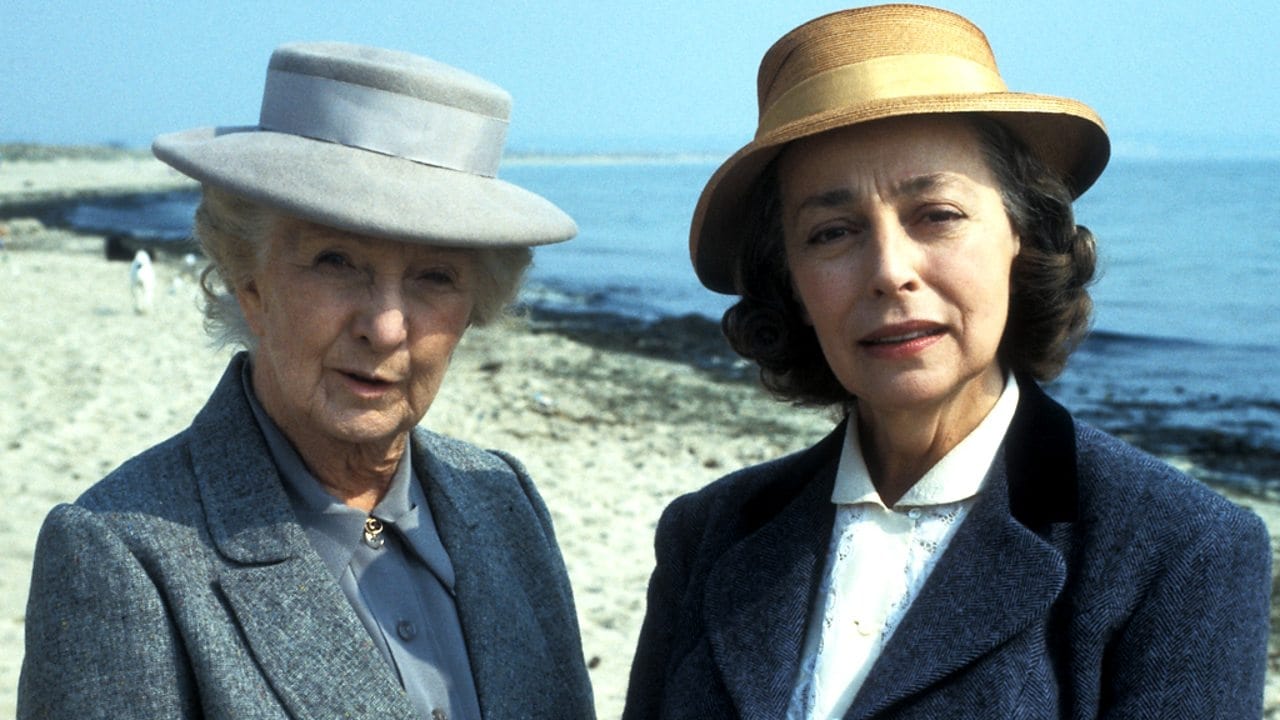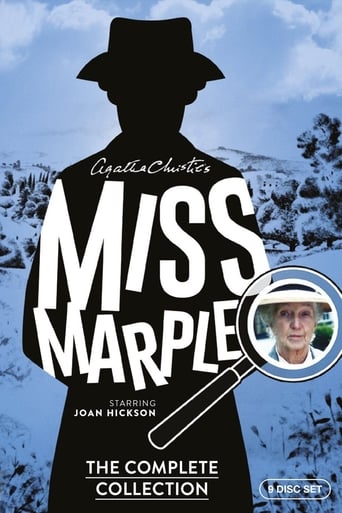

The sleepy peaceful home of the Bantry's is woken to the shattering news that the body of a young platinum blond woman has been found in the Library. Somehow she seems unreal, Dolly Bantry seeks the help of her friend Jane Marple, and the pair seek to unravel the mystery, enquiries lead them to the seaside.This version mirrors the book in so many ways, it's a truly faithful adaptation, as the saying goes 'if it ain't broke don't fix it.' I understand that a few elements are missed, but it would have been impractical to attempt to squeeze it all in.Straight away Joan Hickson shows us why she is the definitive Miss Marple, endorsed by Agatha Christie herself, she'd play the role from 1984 - 1992 and make it her own. She is truly wonderful, even after her introduction you just know that she is Miss Marple.Other performances I liked, firstly Gwen Watford, she is delightful as the ditsy Dolly Bantry, so excited that a body has been found, she clearly loved a bit of drama, I'm so glad she returned in the final episode too. David Horovitch played Slack so well, I can see why he was made a recurring character, I'm sure he was overused but I get why. Trudie Styler is a brilliant Josie Turner, she helps to make the ending quite brilliant, all in a look.It is very long, they certainly put as much of the book in it as possible, it's very faithful, possibly guilty of being a little slow in parts. That somehow seems not to matter, it's a gorgeous production and well worth watching. 8/10
... View MoreA simple story about a rich old man who is going to adopt a dancer to give her his money or at least a good part of it against the will of his children, or in-laws, but Miss Marple is a lot trickier than that and the criminal is someone who wants to put their hands on that money by marrying one of the two official heirs, though the heirs don't seem to really care for the "caprice" of the old man: they may at most be condescendingly looking down upon the fancy of a sick old person. Clever but not enough for Miss Marple to be fooled. It is true she cheats because she has "accomplices" in the police, but she remains entertaining and the older actress that impersonates her is so quaintly delicate and dainty that it is a pleasure to listen to her shy and hardly impressive voice. But don't get fooled by her.Dr Jacques COULARDEAU, University Paris 1 Pantheon Sorbonne, University Paris 8 Saint Denis, University Paris 12 Créteil, CEGID
... View MoreThis was the first of the BBC Miss Marples to feature Joan Hickson. I thoroughly enjoyed it when it was first shown and still do BUT it does seem a little slow now. It was originally shown over three nights and is very steadily paced. Hickson of course is marvellous as Marple and will not offend in any way (unlike the cheekier McEwen) and she has some terrific support. I am particularly fond of Gwen Watford as Dolly Bantry even if she tires of the investigation more quickly than she does in the book. I have to confess to liking the newer ITV cast more in most of the other roles but I do think that Jess Conrad was born to play Raymond Starr! David Horovitch has his first outing as Slack and is still quite fresh here - I did come to wish that the BBC didn't use him quite so much by the end of the series. On the whole, its good stuff and highly recommended.
... View MoreThis gem is indeed far superior to the Geraldine McEwan version. Although it is a very good attempt and the supporting cast are superb,the period detail very good and is faithful to the book, Miss McEwan just does not have the x factor for Miss Marple. In fact with the contrived voice and the gestures she tries just that bit too hard to achieve what Joan Hickson did with so much ease.I understand that so far only four of the series have been re-filmed out of a total of twelve, and I am sure that out of the available Miss Marple contenders. i.e. Angela Lansbury, Helen Hayes, Maragret Rutherford,Joan Hickson and Geraldene McEwan it will be found that Miss Hickson is the definitive.
... View More